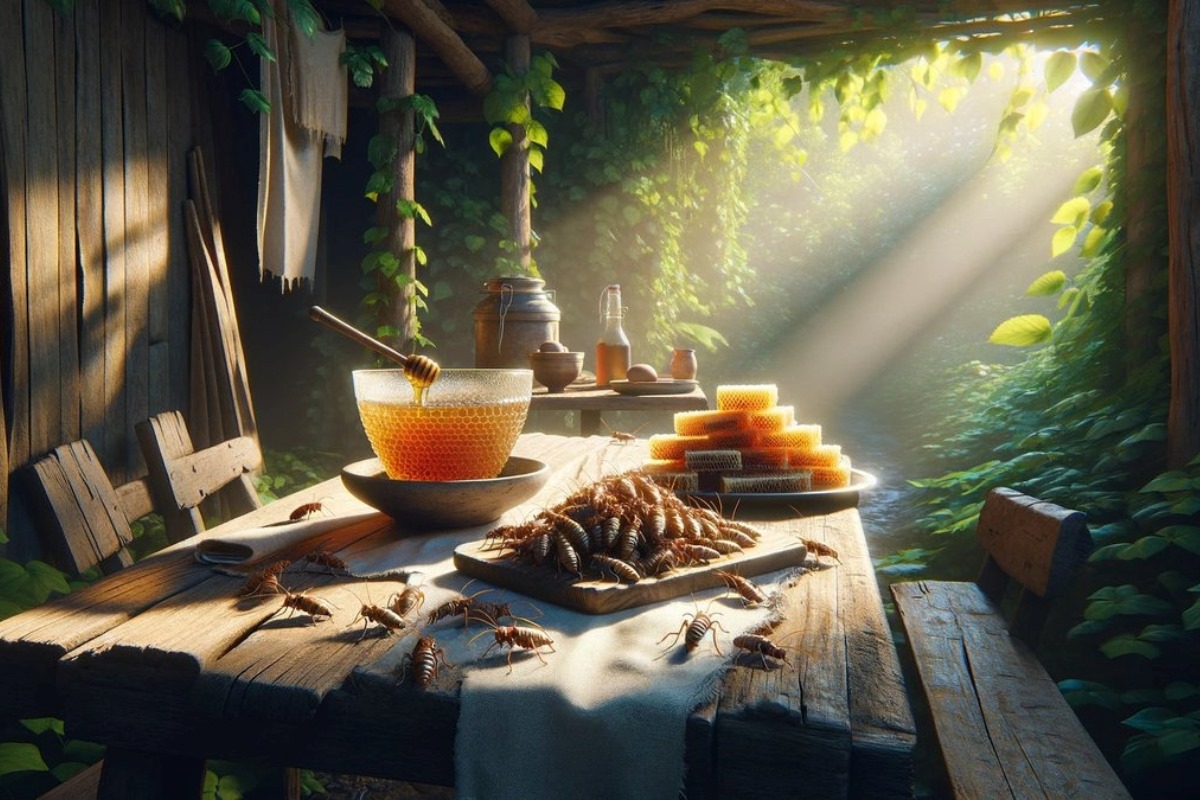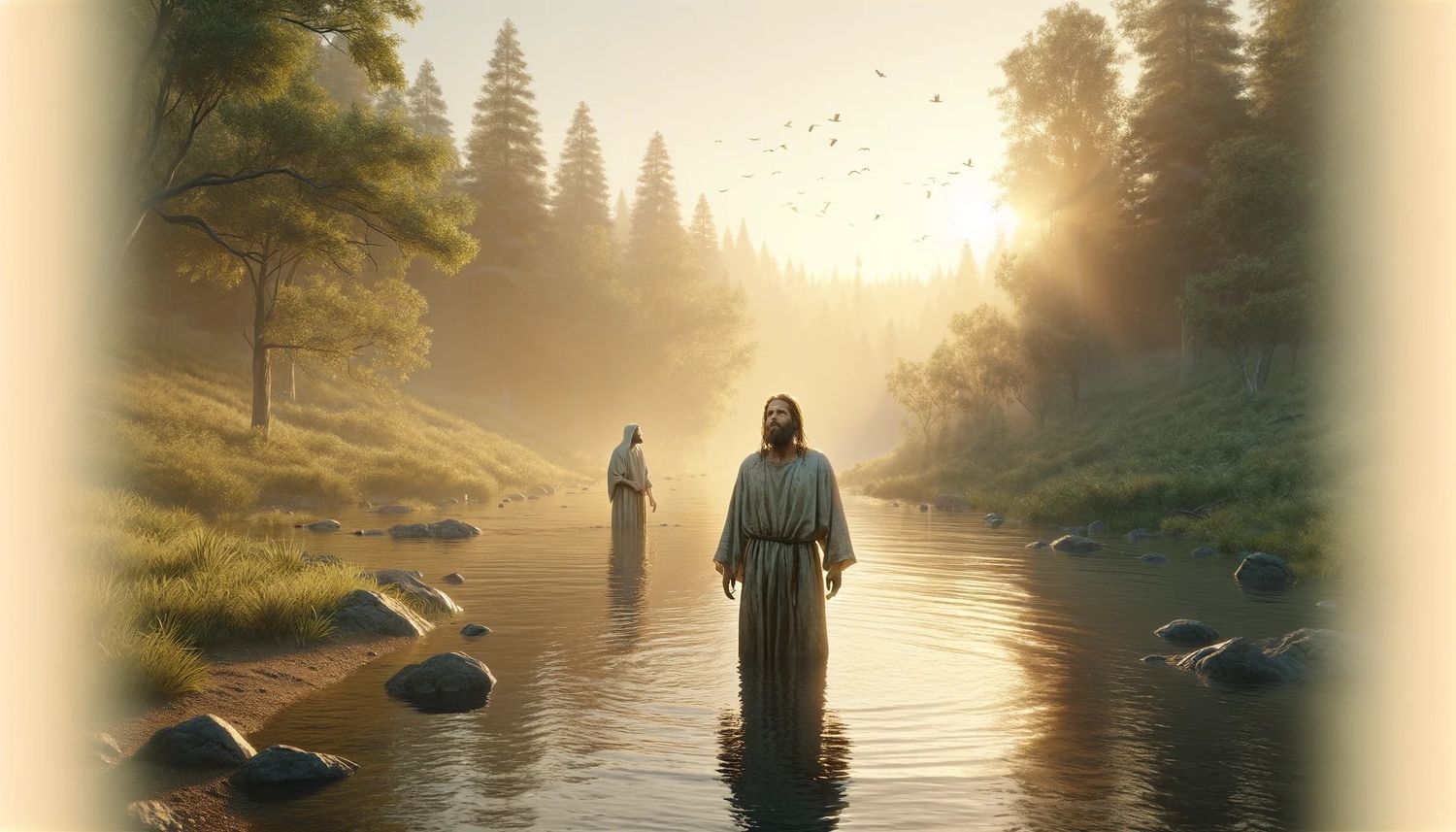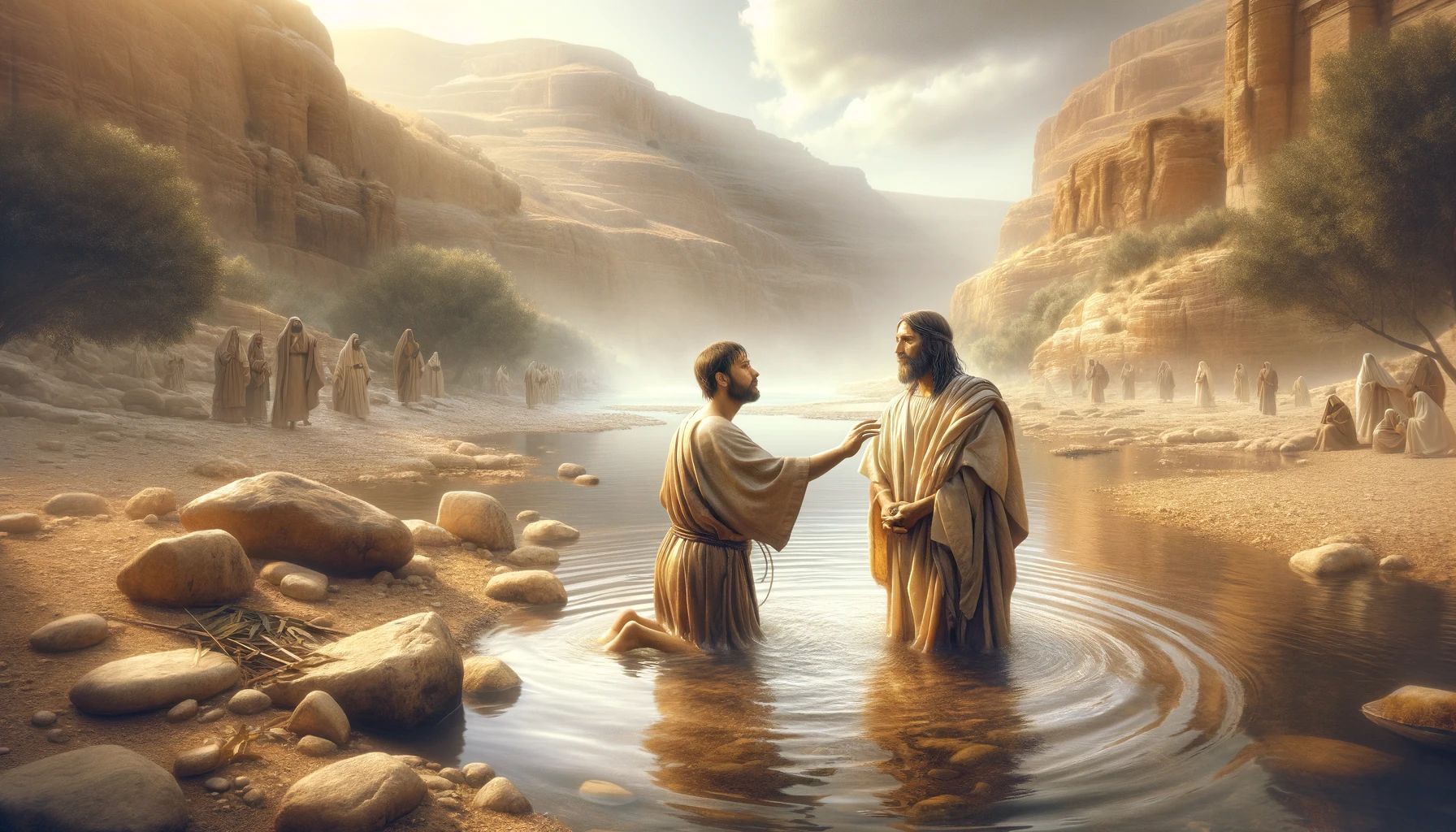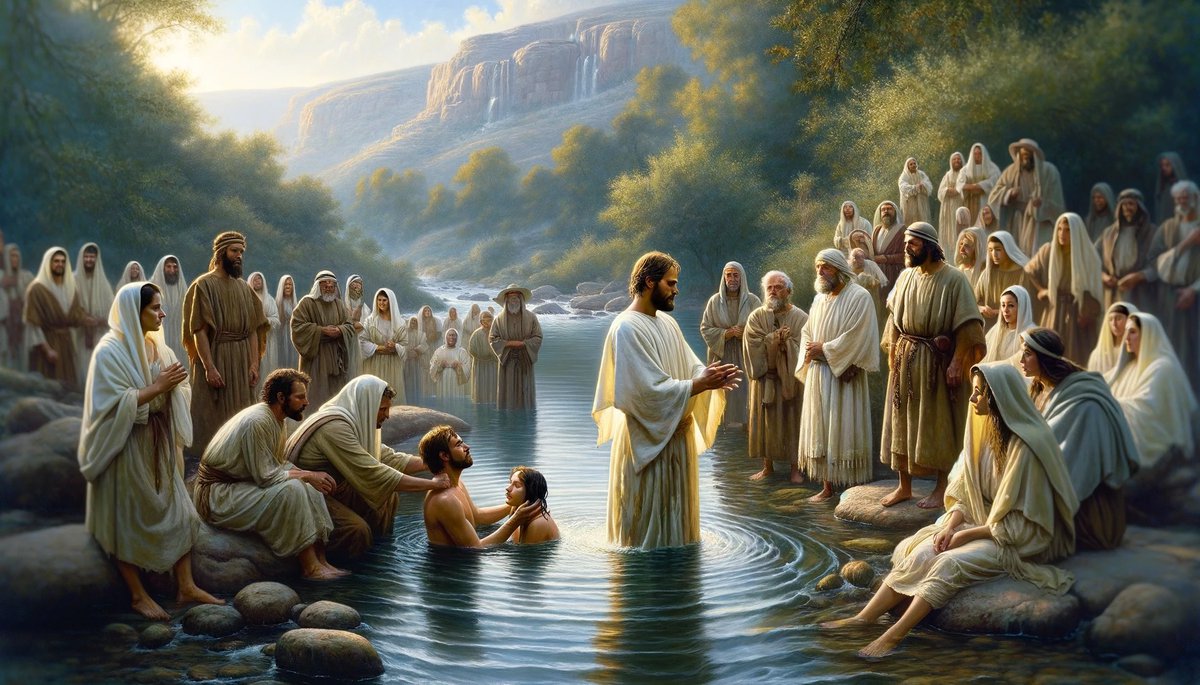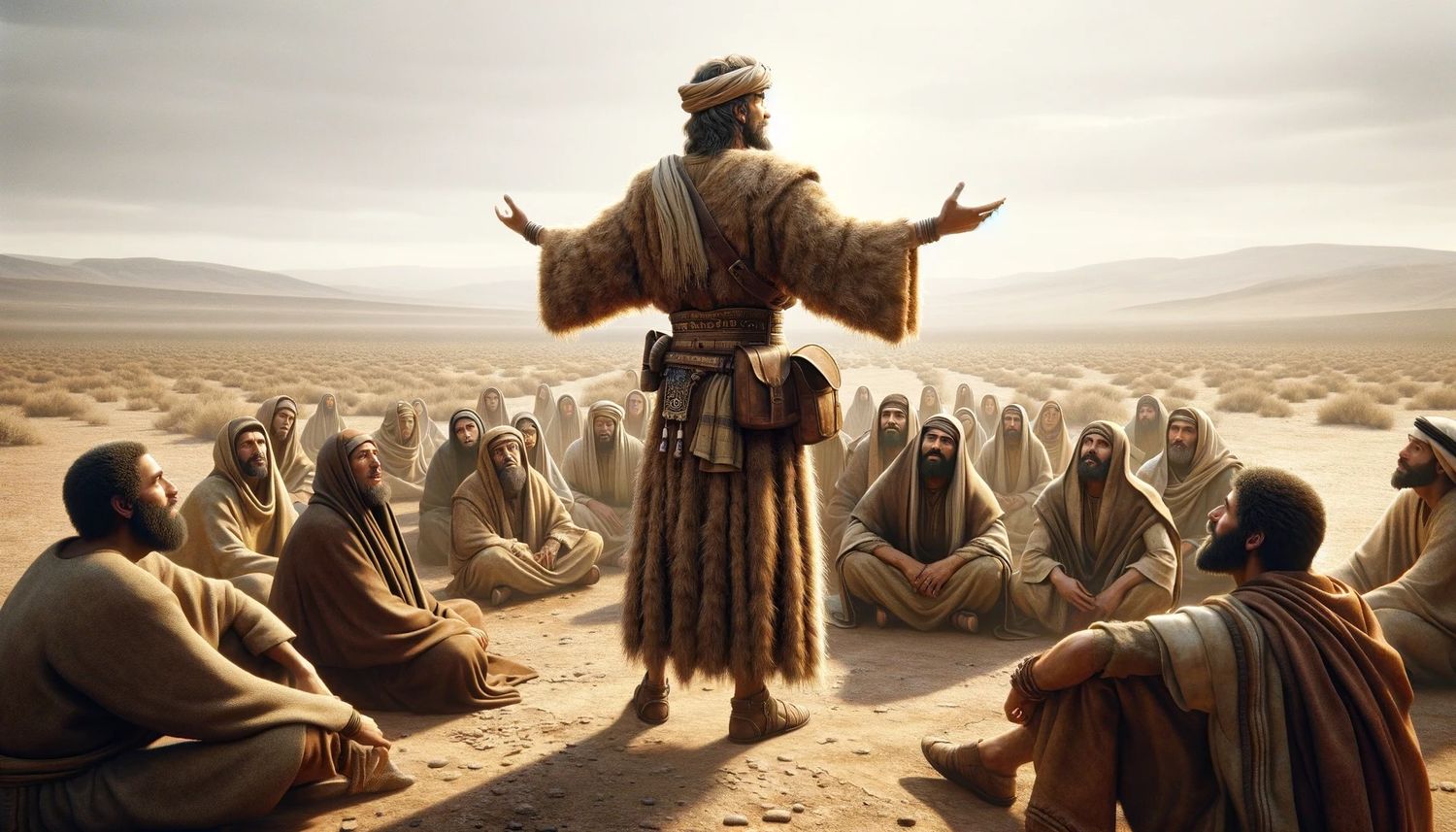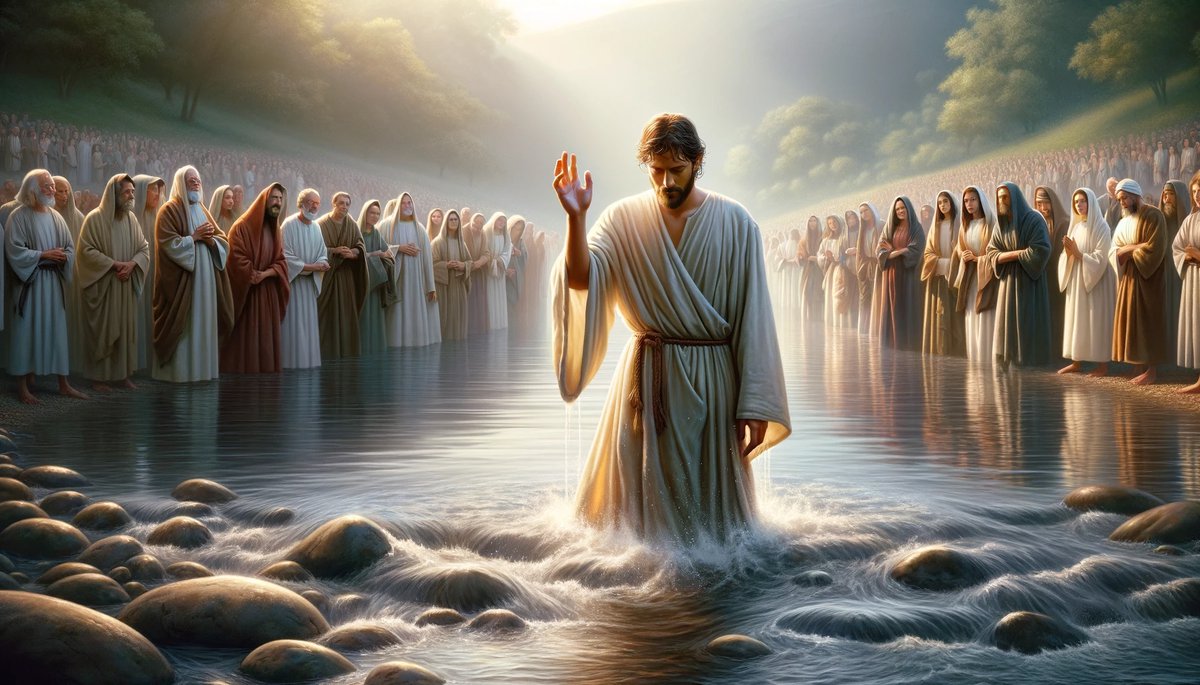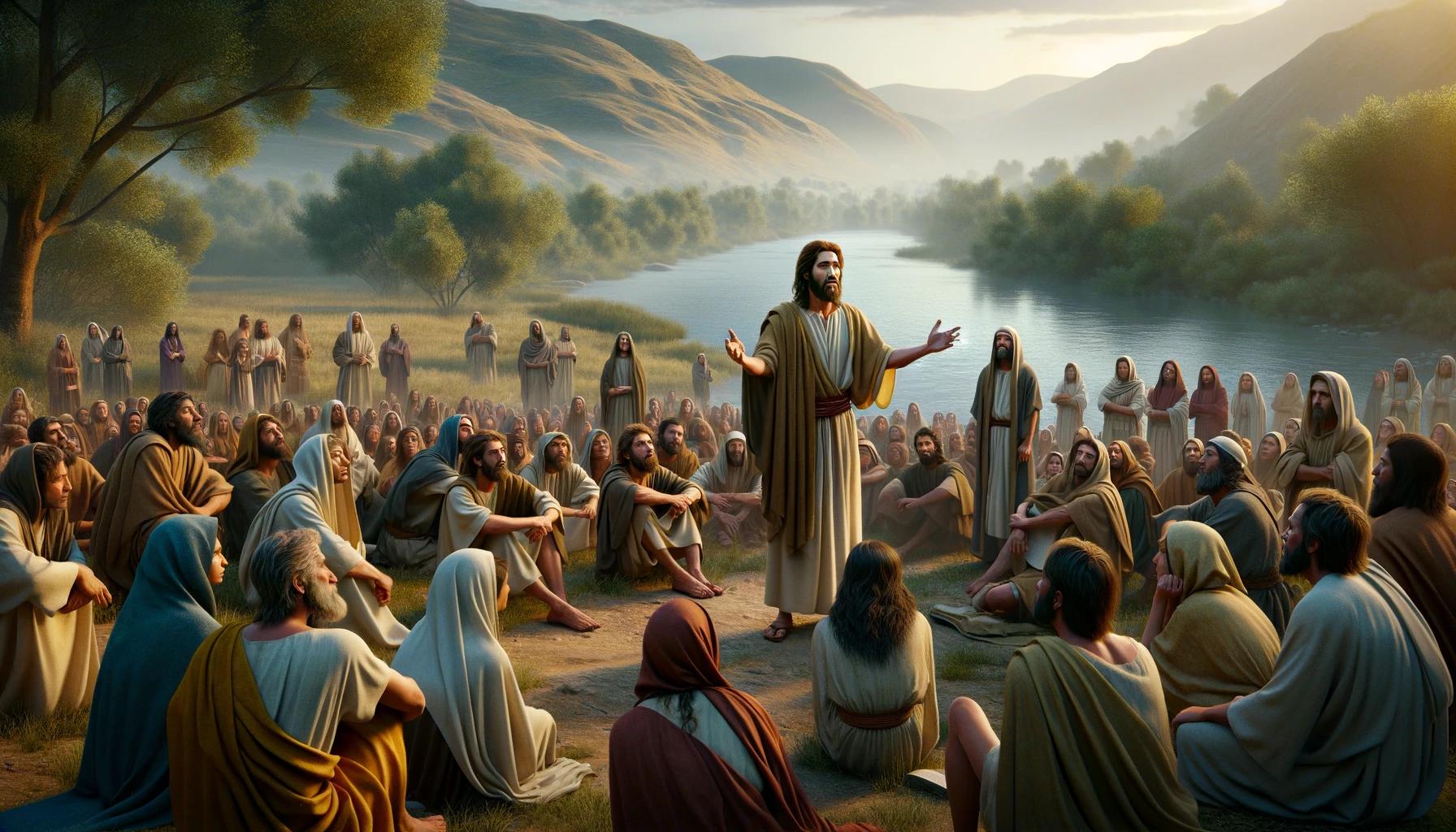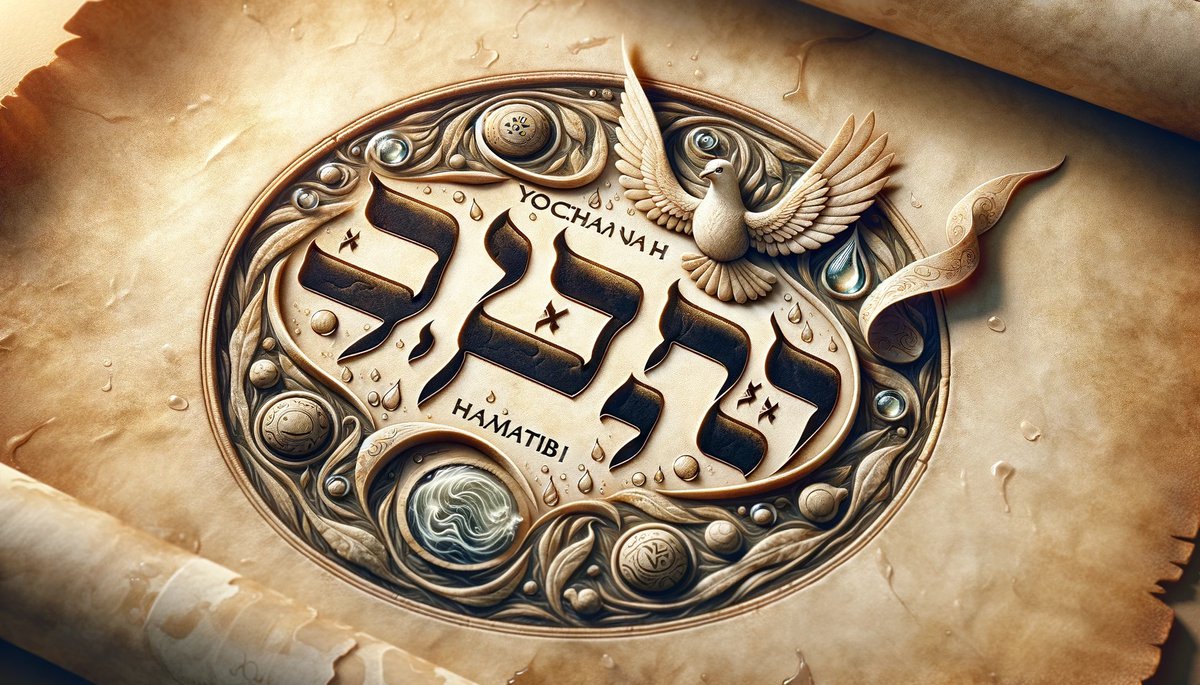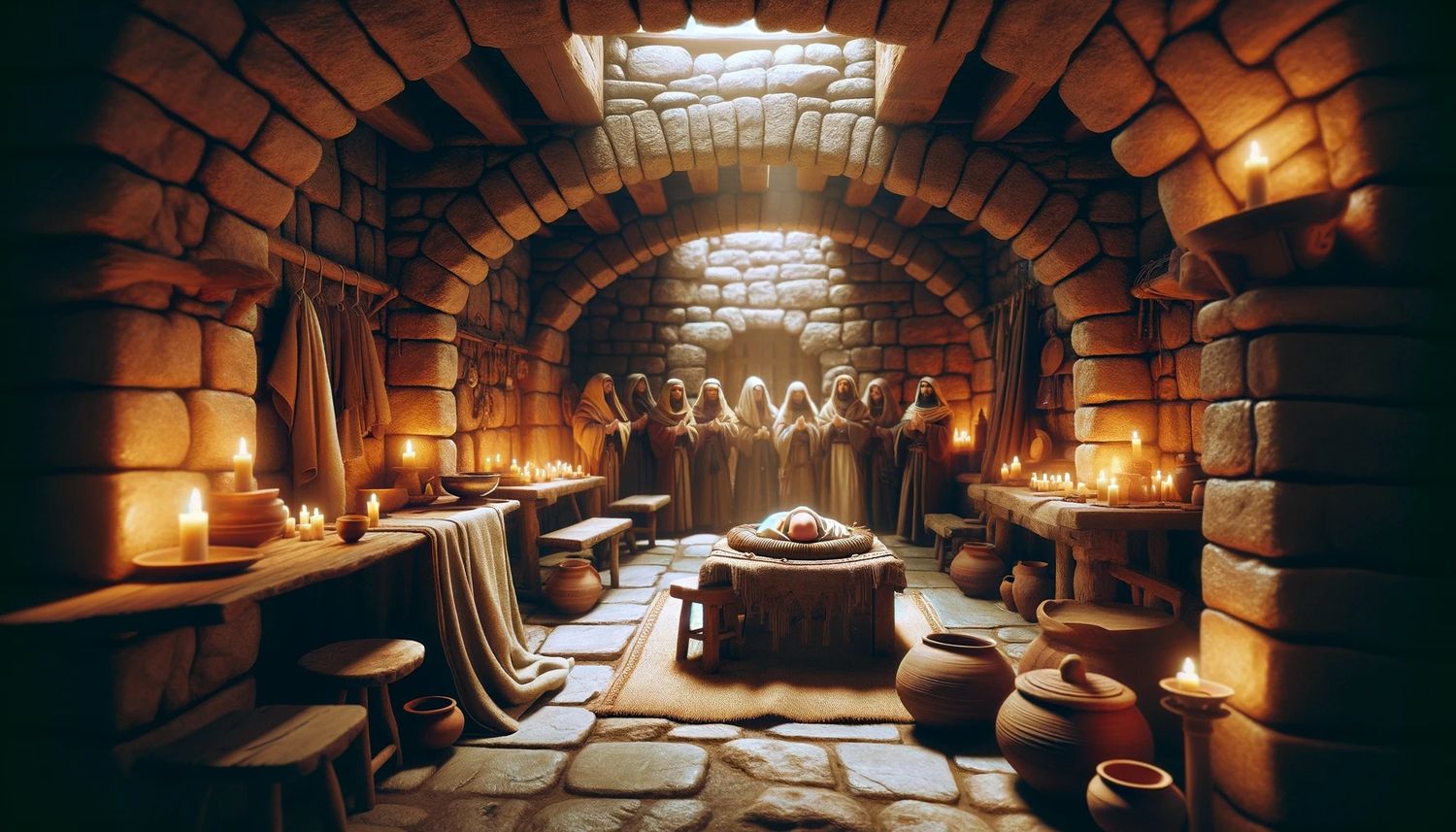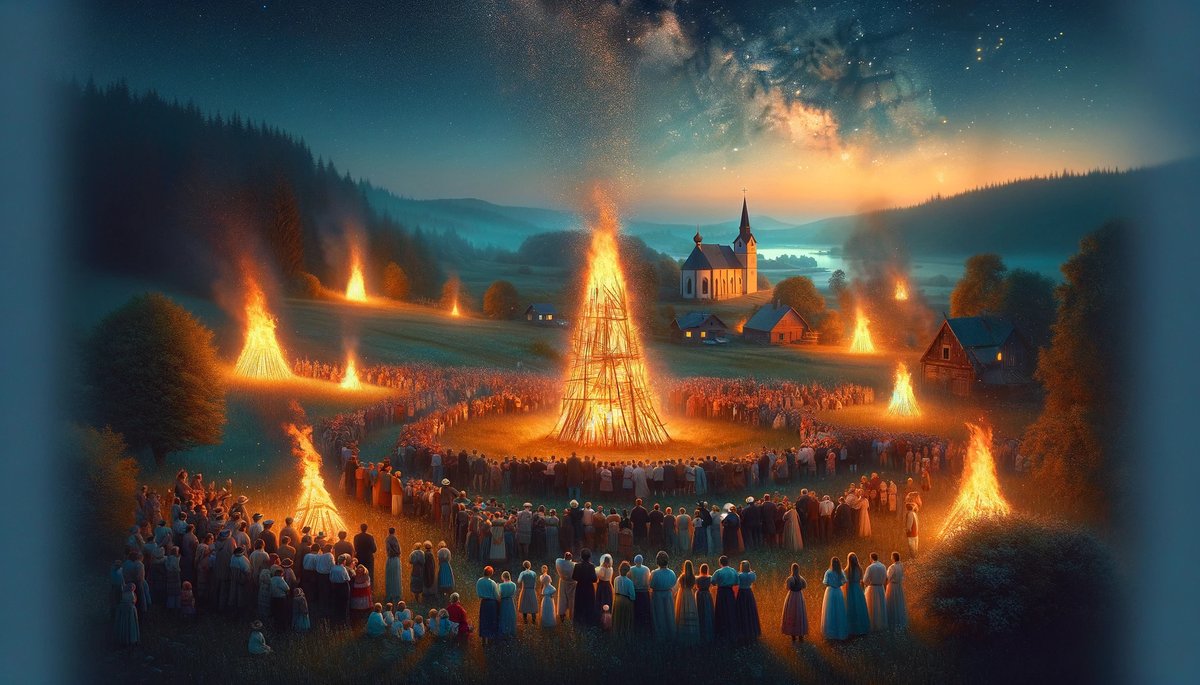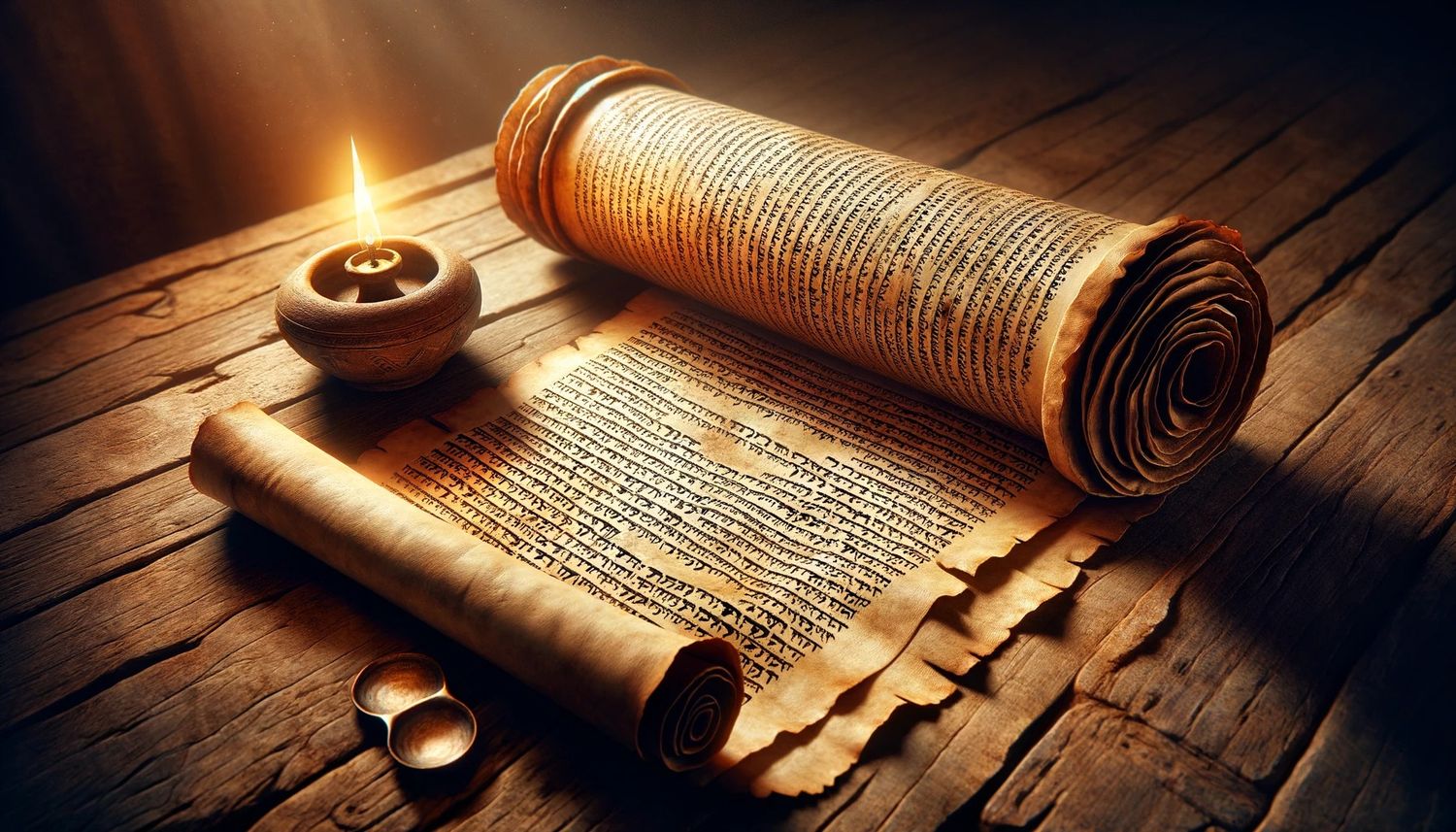Home>Theology and Spirituality>What Was The Locust John The Baptist Ate
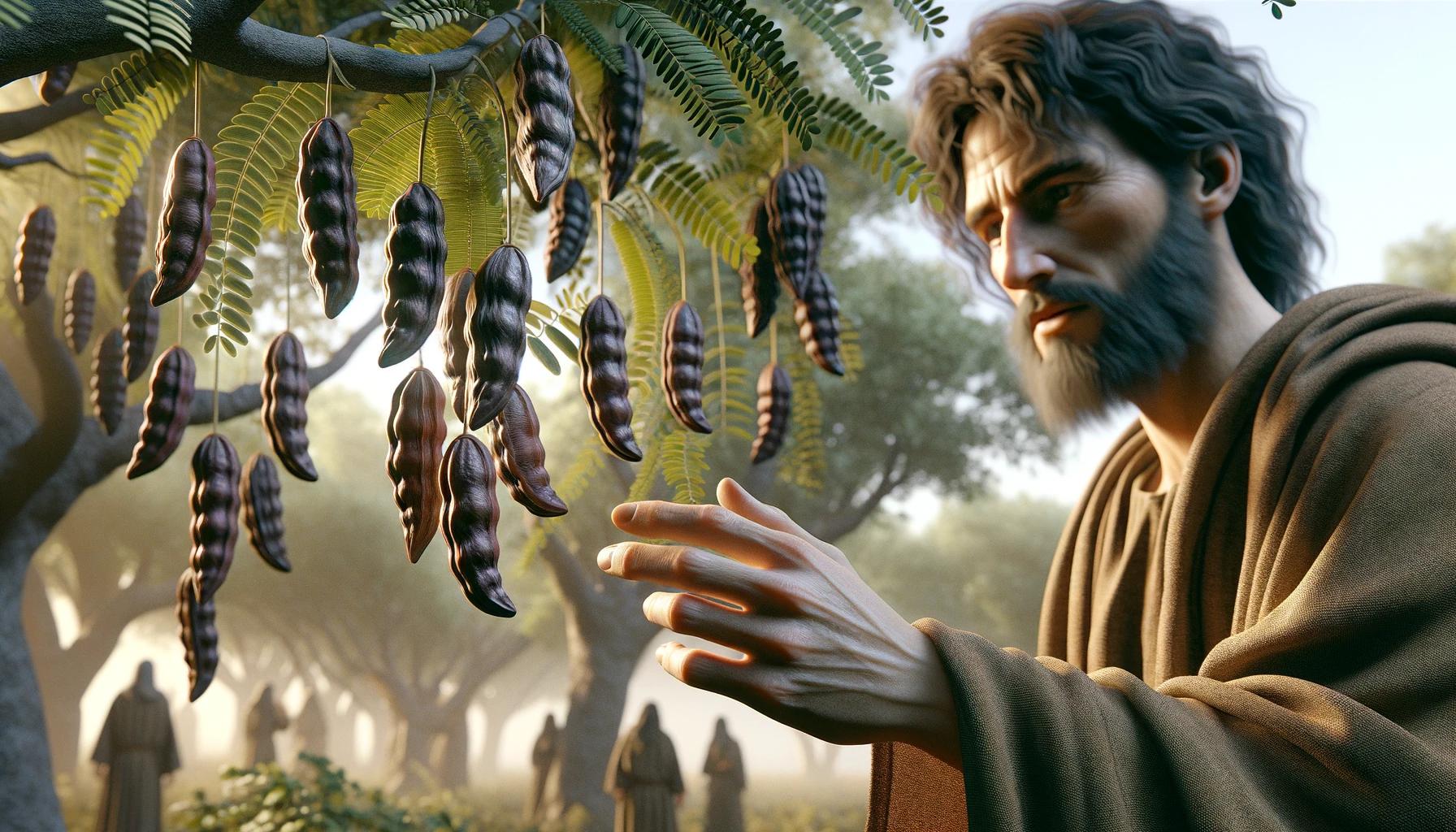

Theology and Spirituality
What Was The Locust John The Baptist Ate
Published: February 23, 2024
Jason DeRose, Managing Editor at Christian.net, uses his expertise in religion and journalism to deepen understanding of faith's societal impacts. His editorial leadership, coupled with a strong academic background, enriches the platform’s diverse content, earning him recognition in both journalism and religious circles.
Discover the significance of locusts in John the Baptist's diet and its theological and spiritual implications. Explore the connection between locusts and theology and spirituality.
(Many of the links in this article redirect to a specific reviewed product. Your purchase of these products through affiliate links helps to generate commission for Christian.net, at no extra cost. Learn more)
Table of Contents
Introduction
The story of John the Baptist, a central figure in the New Testament, has captivated the imagination of believers and non-believers alike for centuries. Known for his ascetic lifestyle and fiery preaching, John the Baptist is often depicted as a rugged and enigmatic figure, living in the wilderness and subsisting on a diet of locusts and wild honey. This unconventional diet has sparked curiosity and debate, prompting many to ponder the nature of the locusts that sustained this iconic biblical figure.
As we delve into the historical and cultural context of John the Baptist's diet, it's essential to approach the subject with an open mind and a willingness to explore the rich tapestry of symbolism and practicality woven throughout the biblical narrative. By examining the significance of locusts in the Bible and unraveling the dietary habits of John the Baptist, we can gain a deeper understanding of the spiritual and earthly dimensions of his remarkable life. Let's embark on a journey to uncover the truth behind the locusts that sustained John the Baptist in the wilderness.
The Locusts in the Bible
The mention of locusts in the Bible evokes a vivid imagery that resonates with both historical and symbolic significance. In the Old Testament, locusts are portrayed as a formidable force of nature, capable of inflicting widespread devastation. The book of Exodus recounts the plague of locusts that ravaged the land of Egypt, serving as a divine instrument of judgment and a testament to the power of God. This catastrophic event underscored the biblical portrayal of locusts as agents of divine retribution and a symbol of impending doom.
In the book of Leviticus, locusts are classified as clean insects, permissible for consumption under the dietary laws outlined for the Israelites. This classification sheds light on the cultural acceptance of locusts as a viable food source within the ancient Israelite community. The inclusion of locusts in the dietary guidelines reflects a pragmatic approach to sustenance in an agrarian society, where the consumption of insects provided a valuable protein source during times of scarcity.
Furthermore, the symbolism associated with locusts extends beyond their role as a food source or a natural calamity. In the prophetic visions of Joel and the book of Revelation, locusts are depicted as harbingers of divine judgment, unleashing their destructive power as instruments of God's wrath. This symbolic portrayal underscores the dual nature of locusts in biblical literature, representing both the physical reality of agricultural pests and the spiritual allegory of impending judgment and desolation.
The multifaceted significance of locusts in the Bible sets the stage for a nuanced understanding of their portrayal in the narrative of John the Baptist. As we explore the dietary choices of this enigmatic figure, it is essential to recognize the rich tapestry of symbolism and practicality woven into the biblical depiction of locusts. This exploration will illuminate the cultural, spiritual, and ecological dimensions of John the Baptist's unconventional diet, offering a deeper appreciation for the complexities embedded within the biblical text.
The Diet of John the Baptist
The dietary habits of John the Baptist have long intrigued scholars and theologians, sparking a myriad of interpretations and speculations. Described in the Gospel of Matthew as "clothed in camel's hair, with a leather belt around his waist" and subsisting on a diet of "locusts and wild honey," John the Baptist emerges as a striking embodiment of asceticism and spiritual devotion. His choice of sustenance, particularly the consumption of locusts, has prompted diverse inquiries into the nature of his diet and its underlying significance.
John the Baptist's diet, characterized by the consumption of locusts and wild honey, transcends mere culinary preferences, offering profound insights into his lifestyle and spiritual mission. The inclusion of locusts in his diet aligns with the historical and cultural context of the region, where locusts were recognized as a viable source of sustenance. In the arid wilderness of Judea, where John the Baptist is believed to have lived and preached, the availability of traditional food sources may have been limited, leading to a reliance on unconventional yet nourishing options.
The consumption of locusts, as permitted under the dietary laws of the Old Testament, underscores the pragmatic approach to sustenance prevalent in ancient Judea. While the notion of consuming insects may evoke unease in contemporary sensibilities, it was a practical and culturally accepted practice in the historical milieu of John the Baptist. Moreover, the nutritional value of locusts, rich in protein and essential nutrients, would have provided a vital source of sustenance for John the Baptist in the harsh wilderness environment.
Beyond its practical implications, John the Baptist's diet carries profound symbolic significance. The ascetic combination of locusts and wild honey reflects a deliberate rejection of opulence and a commitment to a humble existence. By embracing a diet devoid of lavish indulgence, John the Baptist exemplified a life of simplicity and spiritual devotion, transcending material comforts in pursuit of a higher calling. His dietary choices served as a tangible expression of his renunciation of worldly pleasures, embodying the essence of his prophetic mission and unwavering commitment to spiritual truth.
In essence, the diet of John the Baptist, characterized by the consumption of locusts and wild honey, encapsulates a harmonious blend of historical context, practical sustenance, and profound symbolism. This unconventional yet purposeful dietary regimen underscores the multifaceted nature of John the Baptist's persona, illuminating the intersection of cultural, spiritual, and ecological dimensions within the tapestry of his remarkable life and ministry.
What Were the Locusts John the Baptist Ate?
The locusts consumed by John the Baptist, as mentioned in the Gospel of Matthew, have sparked curiosity and contemplation regarding their precise identity. In the historical and cultural context of ancient Judea, the term "locusts" likely referred to a specific type of insect, rather than the botanical plant known as carob. The prevalent scholarly consensus suggests that John the Baptist partook of the edible locusts commonly found in the region, such as the desert locust (Schistocerca gregaria) or the migratory locust (Locusta migratoria).
These species of locusts, known for their swarming behavior and ecological impact, were a familiar presence in the wilderness of Judea. The consumption of these locusts aligns with the dietary practices of the time, where they were recognized as a viable and nutritious food source. Rich in protein, vitamins, and minerals, locusts provided a valuable sustenance option in an environment characterized by scarcity and rugged terrain.
The preparation of locusts for consumption likely involved meticulous cleaning and cooking methods to ensure their suitability as food. Roasting or boiling the locusts would have been customary practices to render them palatable and safe for consumption, reflecting the resourcefulness and culinary expertise of the inhabitants of ancient Judea.
Furthermore, the inclusion of locusts in John the Baptist's diet underscores his embodiment of simplicity and reliance on the natural provisions of the wilderness. By partaking of this unconventional yet nourishing fare, John the Baptist exemplified a profound detachment from material excess and a profound connection to the ecological rhythms of the land.
In essence, the locusts consumed by John the Baptist encompassed a specific category of edible insects prevalent in the region, serving as a testament to the practical resourcefulness and cultural acceptance of unconventional sustenance in ancient Judea. Their consumption not only sustained John the Baptist in the physical sense but also symbolized his unwavering commitment to a life of humility, spiritual devotion, and harmonious coexistence with the natural world.
Conclusion
In conclusion, the enigmatic dietary choices of John the Baptist, particularly his consumption of locusts and wild honey, offer a profound glimpse into the intricate tapestry of historical, cultural, and spiritual dimensions woven throughout the biblical narrative. The portrayal of locusts in the Bible, both as a natural phenomenon and a symbol of divine judgment, sets the stage for a nuanced understanding of their significance in the context of John the Baptist's life and ministry.
The multifaceted symbolism and practicality associated with locusts in biblical literature underscore the depth of their portrayal as a source of sustenance and a metaphorical representation of spiritual truths. John the Baptist's ascetic lifestyle, characterized by his humble diet and renunciation of worldly comforts, resonates as a powerful testament to his unwavering commitment to his prophetic mission and spiritual calling.
The consumption of locusts, permitted under the dietary laws of the Old Testament, reflects the pragmatic approach to sustenance prevalent in ancient Judea, where reliance on unconventional yet nourishing food sources was a testament to the resilience and adaptability of the human spirit. Furthermore, John the Baptist's deliberate choice to subsist on a diet of locusts and wild honey embodies a profound rejection of opulence and a resolute embrace of simplicity, echoing the timeless virtues of humility and spiritual devotion.
By delving into the nature of the locusts consumed by John the Baptist, we gain insight into the harmonious convergence of historical context, ecological sustenance, and symbolic resonance within the narrative of his extraordinary life. The edible locusts prevalent in the region, meticulously prepared for consumption, served as a tangible expression of John the Baptist's profound connection to the natural world and his embodiment of a life rooted in humility and spiritual purpose.
In essence, the dietary choices of John the Baptist, encompassing the consumption of locusts and wild honey, transcend mere culinary preferences, offering a compelling reflection of his unwavering commitment to a life of spiritual truth, simplicity, and ecological harmony. As we contemplate the profound legacy of John the Baptist, his unconventional diet stands as a timeless testament to the enduring power of faith, humility, and the transformative potential of embracing a life guided by spiritual conviction.
